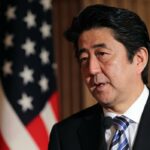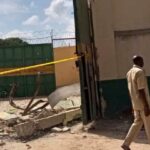
The Anambra State Commissioner for Finance, Mr Ifeatu Onejeme, has said the state can only survive the current economic hardship experienced in the country through internally generated revenues.
Onejeme stated this during the ongoing 2022 revised budget defence before the House of Assembly Committee on Finance and Appropriation in Awka on Friday.
He said every successful country in the world succeeded from taxation and not from the sale of commodities such as Nigeria exporting crude oil.
According to him, the monthly allocation of about N4 billion to N4.2 billion from the Federal Government was not enough to cater to the needs of the state.
“By the time you take out salaries, overheads, and subventions to institutions from the federal allocation, what is left is very minimal and so, Anambra can only survive through IGR.
“This is why the initiatives to drive the revised budget have been captured under the state’s internal revenue service because we have adopted a strategy to consolidate revenue collection. The era of revenue windows in ministries, departments, and agencies has come to an end.
“There are digital platforms that are being introduced such as registration for transport operators. This is all to make sure that revenues are now centrally and digitally collected to reduce leakages,” he said.
He added, “If you also go to telecommunications, and check the average revenue per user for their phone lines, you will find out that Anambra is second or third, after Lagos. So, it tells us that in Anambra State, there is massive IGR potential but the problem has been leakages and IGR warlords.”
The commissioner said that the state government would start to front-load infrastructure investment for economic expansion as well as credit rating to raise money either in the international or local market for the state.
Also speaking, the lawmaker representing Anambra East Constituency and Chairman, House Committee on Finance and Appropriation, Mr Obinna Emeneka, commended the ministries for the initiative to block revenue leakages in the state.





